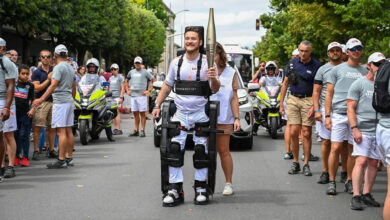Surgery In Space From Doctors On Earth
A small surgical robot aboard the International Space Station has completed its first surgery in zero gravity. The operation was remotely controlled by US surgeons from Earth.

The robot, known as “spaceMIRA”, which stands for miniaturized “In Vivo Robotic Assistant”, was remotely controlled by surgeons about 400 kilometers below in the United States. The surgeons performed various operations on simulated tissue in the laboratory on the International Space Station.
This milestone is a step forward in the development of technology that could have implications not only for long-term manned space travel, where emergencies could occur, but also for the provision of surgical services to remote areas of the Earth.
The US goal of exploring deep space includes the possibility of journeys that could take years. According to NASA, a round trip to Mars could take about two years to complete.
Designed For Space
Designed to perform surgery in space, it weighs only 0.9 kilograms, making it a lightweight instrument suitable for space travel.
To perform the surgery, part of the device is implanted into the body. The device uses two arms to mimic human movements.
This gives surgeons on Earth smaller hands and eyes and allows them to perform many procedures “minimally invasively”.
SpaceMIRA hitchhiked aboard a SpaceX Falcon 9 rocket from Florida’s Cape Canaveral Space Force Station on January 30 and arrived at the space station on February 1.
How Was The Remote Surgery Performed?
In a surgical trial aboard the International Space Station, a robot controlled tissue simulated with rubber bands with one hand and cut it with the other.
A total of six surgeons performed remote tests with the robot, and a common surgical task – “cutting the right piece of tissue under pressure” – was deemed successful.
One of the challenges when trying to control a robot in space from Earth is the delay, or the time difference between sending the command and the robot receiving it.
Surgeons involved in the trial said the delay was about 0.85 of a second.
During surgery, five seconds can be an eternity, and even half a second can matter. Despite the delay, the surgeons were able to complete the tasks.
According to a statement from the University of Nebraska, the findings are also important for expanding surgical options on Earth, such as rural areas or military battlefields.






